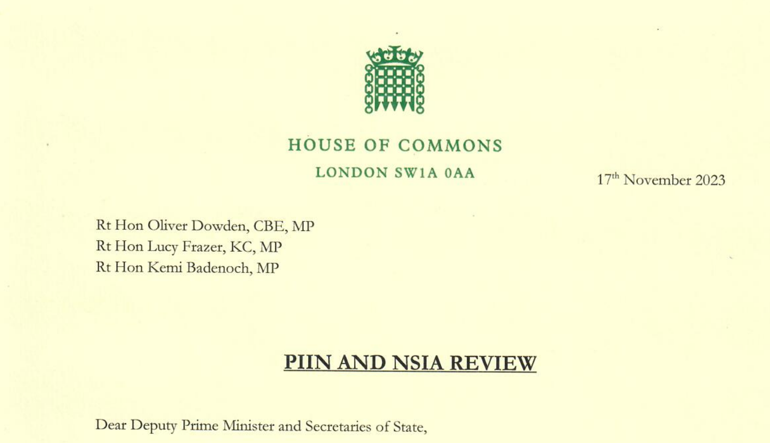The rotten system of media ownership cries out for a bipartisan inquiry, not a shady debt-financed deal that reeks of ulterior motives.
In an urgent letter to government ministers, several MPs—including Sir John Hayes, Sir Iain Duncan Smith, and Sir Edward Leigh—sound the alarm on reports that Emirati royal family investment funds are maneuvering to gain effective control of the Telegraph and Spectator. This chilling takeover bid threatens press freedom and merits close investigation, they argue.
The MPs outline the complex financial arrangements that seem poised to deliver these respected publications into the hands of authoritarians. It involves the Barclay family repaying debts to Lloyds Bank using money from a UAE deputy prime minister’s investment firm. This backroom scheme promises to crash just like HS2—the economics make little sense, so surely other motives are at play.
The MPs rightly blast this as “extremely concerning”, warning it risks turning these influential publications into “instruments of propaganda for the UAE government.” State entities wielding control over pillars of British media violates core principles of a free press.
But their letter also poses a deeper question: Why has our media system deteriorated so badly that a foreign prince can casually snap up the Telegraph over lunch?
During the past decade media power has grown ever more consolidated. As metrics and clickbait corrode journalism from within, the industry comes ever more under the sway of corporate and political interests. The current model is rotten, yet reform remains forever stuck at the starting grid.
The Telegraph and Spectator were long seen as voices of British conservative thought, relatively free from proprietorial interference. But through a dodgy backroom deal, they now face effective nationalization by an Emirati deputy prime minister’s investment vehicle.
This is not an advance for media diversity, but a retreat into the pocket of an authoritarian petro-state. While business imperatives drive such decisions, their wider impacts cannot be ignored. Two respected publications that shape political discourse in the UK now risk becoming conduits for the PR priorities of a foreign government. This should disturb anyone who cares about editorial integrity or public debate.
The Institute for Public Policy Research’s shelves sag under the weight of ignored proposals to diversify media ownership while enhancing journalistic standards. Yet Westminster slumbers as our public sphere becomes further dominated by corporate and political interests.
In The New Serfdom, author Peter Mair warns that representative democracy is being undermined by collusion between governing elites, big business and the media. Deals like this Telegraph takeover only strengthen that trend, entrenching unaccountable concentrations of power.
For a government supposedly concerned by overseas threats, its silence on this takeover bid is deafening. The MPs demand proper scrutiny under merger and national security laws. Media reform needs not partisan point-scoring but a bipartisan inquiry into the glaring flaws allowing such threats to emerge.
Yet rather than investigate this rotten deal or address wider decay in British media, the government stays mute, ignoring the MPs’ urgent appeals. Such negligence gives democracy’s enemies free rein to capture the commanding heights of our public discourse. The long term consequences for informed debate could prove severe.
The path ahead promises turbulence. But free discourse depends on asking difficult questions, not allowing them to be shouted down or simply bought up. If the Telegraph changes hands without conditions, it may soon find certain difficult questions are no longer asked at all.
Written by Eagle


Leave a Reply